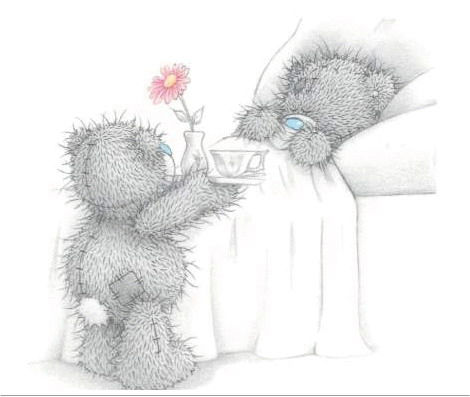You are currently browsing the tag archive for the ‘cognitive’ tag.

Learn to check yourself and whether you are consistent. Learn also to be aware of others and whether they are congruent i.e. whether their words and behaviors are consistent. Within ourselves, when this occurs, we create what we call “cognitive dissonance.” We naturally don’t like being incongruent, so there is internal pressure to reduce the incongruence. We do this by either changing our words or our actions. This can be either healthier or sicker. Try not to get caught up in others’ mixed messages. When in doubt, I tend to trust the behavior rather than the verbiage. Peace, John
How to leave a comment on this blog:
First, make sure that you are on the actual blog: https://personalgrowthconcepts.wordpress.com (this is important if you are viewing the Touchpoints blog post on Facebook, LinkedIn, other locations or, if it has been forwarded to you by someone else). Above the picture and/or quote there is a title and a date. Just below that, in small print, are the categories and the tags. These are helpful if you’re using the search feature. At the end of those there are the words, “leave a comment.” Click on that and follow the directions. Once you have typed your comment and click send, I will be notified and approve the comment before it will be visible to all. Please let me know if you have any trouble with this.

I don’t fully believe this quote! I believe addiction usually starts with an irrational belief that sounds something like this, “I should always feel happy” or “I should always feel okay,” or some other belief about how one should feel. This is usually contrary to the way one is feeling. When there’s a conflict between what we feel and what we believe we should feel, there is an internal drive to reduce that conflict, or as it’s professionally called, “cognitive dissonance.” Addiction tells us to take something “out there” into our “in here” that will change our experience. When we do this we’ve artificially changed our experience to fit our irrational belief. Certain substances, alcohol, other drugs, certain behaviors and codependent relationships will, almost 100%guaranteed, change our feeling state. This happens in the short run and usually wears off leaving us with the original not-so-ok feelings, as well as guilt because what we did didn’t work and frustration because now we have several not-so-ok feelings. This combination makes us feel worse and, still holding onto the irrational belief that we should feel better, drives us to repeat the same steps. Addiction is a short-term solution for a long-term problem; it is progressive and, if left untreated, will get worse over time.
Recovery begins by stopping the substance or behavior and then changing our irrational belief about our feelings. The healthier belief is: “I should feel whatever it is I am feeling.” We don’t have to like the feelings but it’s helpful if we can identify them, accept them and, accept those parts of ourselves in the process. Finding a new way to deal with our feelings is key to the recovery process once the addictive behavior is stopped. The Big Book of AA states: “Acceptance is the answer to all my problems today…..” Acceptance of feelings is definitely part of the recovery process.
Feeling empty is one of the feelings that people often drink or drug to help them manage. The “something out there” never can fill up what Bradshaw calls, “the hole in the soul.” It’s a pipedream hope! That hole can be healed by identifying the feelings and accepting them as where we’re at right now. Feelings are not forever. We can find other ways to fill the hole in our soul. These new ways don’t rely on chemicals, behaviors or other people. If we don’t, we recycle the emotional pain with addiction. If we do, we find ourselves experiencing new facets of our self. Recovery from all addictions is an inside job but best done with others already in or struggling with their own recovery. Remember, the first word of the first step of Alcoholics Anonymous is “We!”

Here are some ideas to help you “get it!”
OK – so you and your loved ones have gotten through the holidays. Perhaps someone you love was depressed before or during the holidays. It can be a hard time when it seems like everybody is upbeat and happy. The gap between what society tells them (or they believe) they should be feeling and what they are actually feeling can seem larger for those who are already depressed. The depression can linger and worsen. Try to separate the post holiday blues (cold weather, bills coming due, etc.) from a deeper form of what we call “major depression.” Major depression lingers, usually interferes with sleep, appetite and daily routines and is characterized by strong negative feelings including: guilt, sadness, regrets, shame, inadequacy, and fear. Depression often interferes with attention, concentration, and memory.
What can you do if someone you love feels depressed? Telling yourself that you can’t do anything only avoids the situation – it definitely doesn’t help you or them in the long run. The first thing you can do is take good care of your self. Set good boundaries, get adequate rest, make “I statements” and keep up your daily routines. If you’re not good for you, you won’t be able to be helpful to anyone else!
Next, learn about depression and acknowledge that it is a highly treatable disorder. The symptoms of the disorder often make it hard for the person to connect/communicate with loved ones, friends and at work. Try not to take the symptoms personally. I know of no one who has ever chosen to be depressed. They are not doing it “to you” or “to get back at you.” In fact, they aren’t doing it deliberately at all. Depression is often an interplay between genetic, bio-physiological and cognitive factors. Remind yourself that you can’t “fix” it – don’t try to rescue them and, if need be, remind yourself that their depression is not your fault. Find ways to express your concern, try to guide them to help and stick with them through the treatment process.
If the person is seriously depressed and you think they may be thinking about suicide, ask them! If they are talking about suicide, please take it seriously. Do not leave the person alone. Remember exactly what the person said and call 911 and let the EMTs or hospital staff evaluate it. The reality is that people who are talking about harming themselves are at a greater risk of attempting suicide.
Here are some ideas about what you can say that may help:
- You are not alone in this. I’m here for you.
- You may not believe it now, but the way you’re feeling will change.
- I may not be able to understand exactly how you feel, but I care about you and want to help.
- When you want to give up, tell yourself you will hold on for just one more day, hour, minute—whatever you can manage.
- You are important to me. Your life is important to me.
- Tell me what I can do now to help you.
Avoid saying things like:
- It’s all in your head.
- We all go through times like this.
- Look on the bright side.
- You have so much to live for why do you want to die?
- I can’t do anything about your situation.
- Just snap out of it.
- What’s wrong with you?
- Shouldn’t you be better by now?
The above two listings adapted from: The Depression and Bipolar Support Alliance as quoted in: http://www.helpguide.org/articles/depression/helping-a-depressed-person.htm
Treatment options may include: counseling, medication prescribed by a primary care physician, physician’s assistant or advanced practice registered nurse, exercise, diet and a variety of other alternative therapies. Frequently, combinations of these treatments have proven more effective and timely. Remember, several underlying medical problems can leave people feeling depressed; these medical conditions need to be ruled out by appropriate medical practitioners. These may include: anemia, mononucleosis, thyroid & other endocrine disorders, neurological disorders, and chronic fatigue syndrome and other autoimmune disorders.
If a simple screen for depression would be helpful, please contact me via email at jpacheco@personalgrowthconcepts.com Type in the subject line: request for depression screen.
Finally, remember, just being there with them, supporting, not judging and guiding them (not controlling or forcing them!) can help them through the darkest times.
Peace, John
Today we welcome 15 new members to our blog. They are people I have known and cared about in the past and the years have seen us drift although the memories of time shared are positive and long-lasting. In cleaning up some old email addresses, I decided to add these people to my blog list. If you received this and are not interested in getting weekly positive quotes along with some of my insights, please feel free to unsubscribe yourself. If you received it and are happy to hear from me again and, if you benefit from it, please feel free to let me know and to pass it on. Peace, John





















